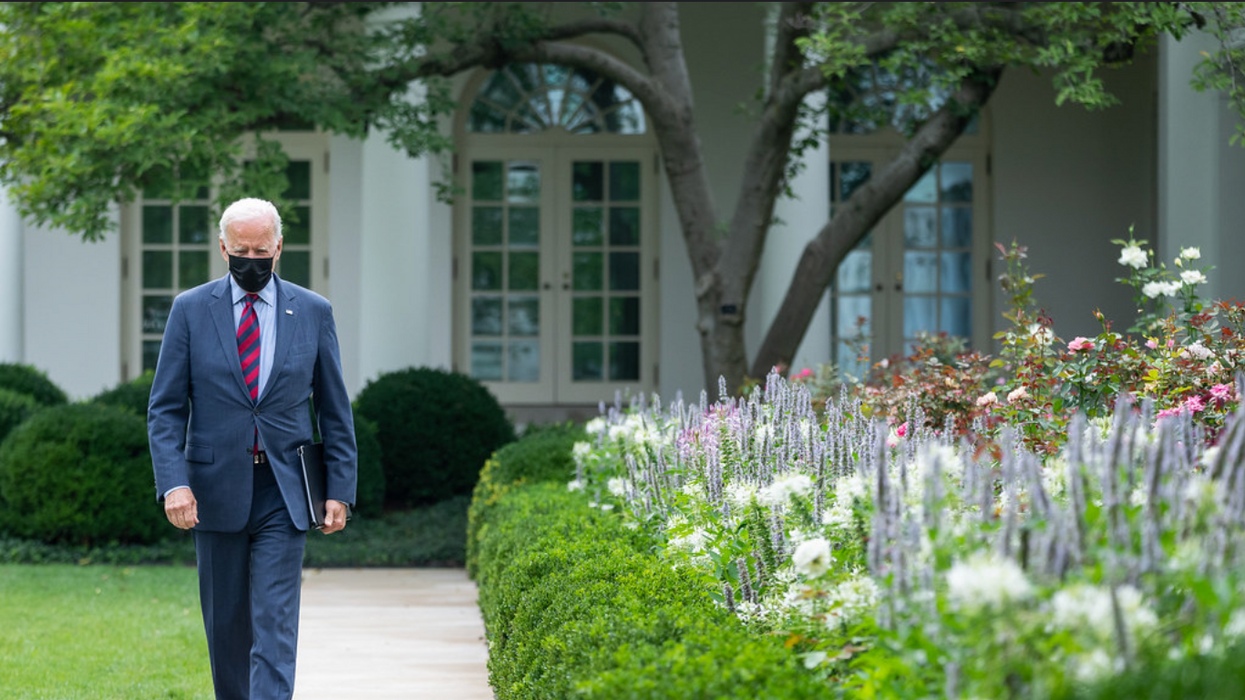Republicans Flood Media With GOP Polls, Slanting Averages In Midterm
As former Trump aide Kellyanne Conway once suggested, if you don't like the facts, just create alternative facts.
That's exactly what Republicans and their pollsters are doing in several of this cycle's most hotly contested races.
Take Georgia, for instance—until about October 21 or 22, Democratic incumbent Sen. Raphael Warnock had been holding a pretty steady three to four-point lead during October over his GOP rival Herschel Walker in FiveThirtyEight's aggregate. Then the gap suddenly narrowed to about one point in the final week of October, Warnock 46.7 percent - Walker 45.4 percent.

What exactly happened to nudge Walker into contention to take the lead? A whole bunch of GOP-slanted polls, that's what.
Of the seven aggregate polls taken since October 21, five of them were conducted by either GOP-aligned groups or pollsters that use friendly GOP modeling: Trafalgar Group, Rasmussen Reports, Moore Information (Walker poll), co/efficient, and InsiderAdvantage. All of them put Walker in the lead by anywhere from two to five points.
The two other polls—one conducted by The New York Times/Siena College and the other for the Atlanta-Journal Constitution—found that Warnock had a three-point advantage and the two candidates were tied, respectively.
Perhaps the most deceptive polling outfit is InsiderAdvantage, which polls for Fox affiliates across the country, giving the surveys the veneer of being even-handed media-sponsored polls. But a quick google search of the pollster finds their handiwork generating GOP-friendly headlines in several of the key contests they have polled:
- FOX 5 Atlanta: Kemp, Walker hold leads in major Georgia races in new InsiderAdvantage/Fox 5 poll
- FOX 29 Philadelphia: InsiderAdvantage/FOX 29 poll: Fetterman, Oz neck and neck as Shapiro’s lead over Mastriano narrows
- FOX 10 Phoenix: 2022 Arizona Election Poll: Lake leads governor's race, Senate race tightens
Wow, Republican prospects are really improving across the board. Amazing.
The red mirage, as it were, is also evident in Pennsylvania's Senate race: Three of the five aggregate polls taken since October 20 are from GOP-friendly groups, all of which give Republican nominee Mehmet Oz a two to three-point advantage over Democratic nominee, Lt. Gov. John Fetterman.
The other two surveys show Fetterman maintaining a lead. NewYork Times/Siena put Fetterman up 5 points, 49 percent -- 44 percent, and CBS News/YouGov gave Fetterman a slimmer 2-point edge, 51 percent -- 49 percent.
As TargetSmart CEO and data analyst Tom Bonier, noted, "After a flood of GOP outlier polls in all of these races designed to create stories about an impending red wave and digging into why Dems are losing ("is it crime/inflation?"), New York Times/Siena suggests not much has changed in these races in the past two weeks."
Here are the top lines of the New York Times/Siena polling from four key Senate contests released Monday:
Arizona: D+6
Sen. Mark Kelly (D), 51 percent
Blake Masters 45 percent
Georgia: D+3
Sen. Raphael Warnock (D), 49 percent
Herschel Walker, 46 percent
Nevada: Even
Sen. Catherine Cortez Masto (D), 47 percent
Adam Laxalt, 47 percent
Pennsylvania: D+6
Lt. Gov. John Fetterman (D), 49 percent
Mehmet Oz, 44 percent
Pro-GOP polls have also made their mark on FiveThirtyEight's congressional generic ballot aggregate, as I noted last week.
As demonstrated above by the FOX affiliate coverage, the GOP-aligned polls have become part of a Republican feedback loop that is inspiring a disproportional amount of pro-Republican horse-race stories both locally and at the national level.
And yet, the latest round of New York Times/Siena surveys in individual races suggests Democrats are very much both holding their own and even beating expectations in some cases in both the House and the Senate.
\u201cOur final* polls: the Senate is close, with some decent results for Democrats \nhttps://t.co/mEEUngwujY\u201d— Nate Cohn (@Nate Cohn) 1667216136
The coverage hyping a GOP surge this cycle isn’t only misleading, it’s dangerous—particularly since it exists in an amped-up environment where most MAGA Republicans already believe they were cheated in the last cycle. Sure, Republicans might have a good night next week—that’s completely plausible. But most surveys taken by legitimate outfits suggest a very competitive landscape where Democrats could just as easily outperform expectations.
Reprinted with permission from Daily Kos





